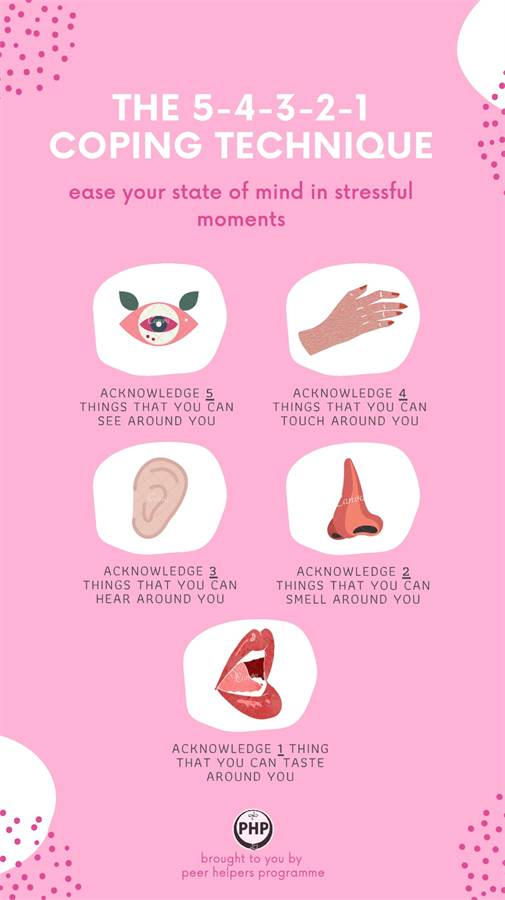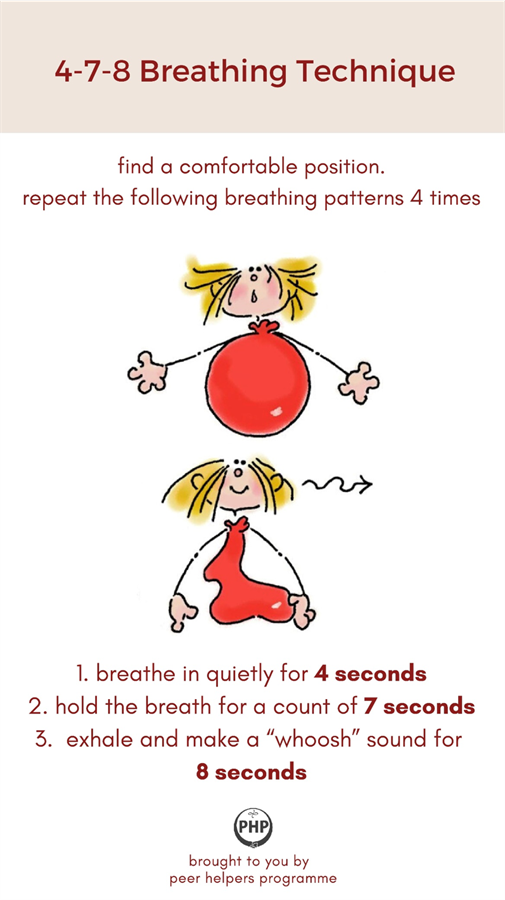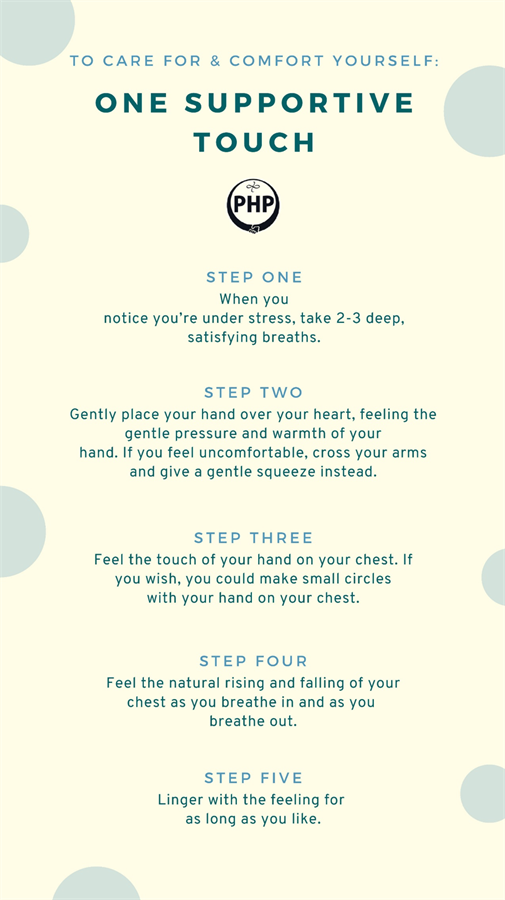We need to take care of ourselves so that we can take care of our family.
“There’s so much to do!” “I can’t even take a break!” “What’s next?” If you have had such thoughts in the past couple of months, you are not alone. Many parents, especially full-time working parents, are inundated by messages from the schools, government and media about anything COVID-19-related. You may feel an increasing sense of isolation, ‘no time-off’, or chronic fatigue looming above you.
We have come up with some tips that may help you take care of yourself, which you may also do with your teenager:
1. Notice yourself
All of us hold four inter-connected aspects to the way we feel: physical bodily sensations (e.g. aches, muscle twitches, tightness, nausea), thoughts (e.g.: I am not doing enough, Why did that happen?), behaviours/ actions (e.g.: running away, eating, watching TV), and emotions (e.g. sadness, anger, shame). Very often, for both yourselves and your teenagers, the thoughts and behaviours are more prominent. We pay lesser attention to our physical bodily sensations and emotions, which are often the earliest indicators that something is not quite right.
Below is a technique you can try to notice your physical body, thoughts and behaviours.

2. Normalise your emotions
Whenever you get frustrated, upset or sad, do take time out to assure yourself that your emotions are natural and normal. Do also take meal times or family times to assure your teenagers. All of us experience a full range of emotions, some positive and some negative, as a reaction to the situations in life that we face.
Emotions are waves that rise, peak, and fall. Yes, emotions can get very intense but they will come down eventually. Know that the best thing to do is to drop an anchor, wait it out safely and not do anything impulsive while being in the thick of the emotions. As you learn to do so, you can help your teenagers to do so as well.
Try the exercise below whenever you feel the surge in emotions:

3. Nourish & Nurture
In order to be able to ‘hold’ our teenagers’ emotions, help them regulate their emotions and respond in a nurturing manner, you need to ensure that you yourselves are well-regulated. Do watch out that you do not suffer from vicarious trauma (the effects of indirect trauma that occurs when you are exposed to difficult or disturbing images and stories second-hand). It is very common to think that you can manage your stress and anxiety well and not give yourselves sufficient time to recharge your internal tanks, or nourish yourselves.
Do give yourself the permission to take scheduled mental health breaks regularly and do something fun, relaxing and enjoyable without feeling guilty about it! Nourishing should be done pre-emptively and pro-actively so that your tanks are full, rather than reactively trying to fill them up only when you are draining them or running on empty. As you nourish yourself, you can continue to nurture your teens and remind them to care for their continued mental and emotional well-being.
This technique below lends comfort and nurturance to yourself and allow you to be present in the moment.

If you have more queries or think your teen might benefit from more support, you can drop us an email at [email protected] .
We hope that in this period of new routines and uncertainty, you would take good care of yourself before taking care of your teenager. Stay healthy and keep calm!
Warmest regards,
The RGC team

The RGC Team from L-R: Mei Hui, Kah Hwee, Alexis, Paul, Zull, Jeffrey
References
Harris, R. (2019). Emotional Regulation Strategies in ACT: A practical guide for ACT therapists
Langley, M. (2011). Mindfulness Made Easy: Be more mindful in your daily life. London, Great Britain: Hodder & Stoughton Ltd
Savage, J. (2007). Focus on the Family: Taking Care of Yourself. Retrieved from https://www.focusonthefamily.com/parenting/taking-care-of-yourself/
Sigel, D. J. & Bryson, T. P. (2012). The Whole-Brain Child: 12 Revolutionary strategies to nurture your child’s developing mind. New York: Bantam Books.